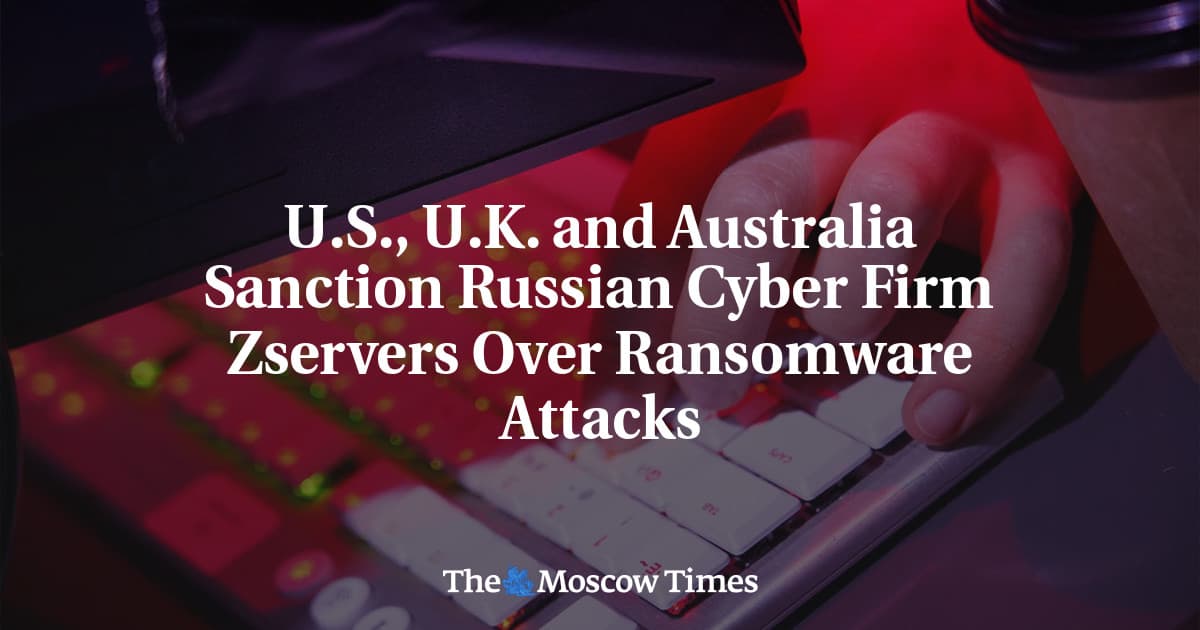U.S., Britain, Australia Sanction Russian Hosting Firm Media Land
The United States, Britain and Australia announced coordinated sanctions on Russia based web hosting company Media Land and associated entities, accusing the firm of providing "bulletproof" hosting that helps ransomware groups operate with impunity. The measures target executives and sister companies with financial and trade restrictions intended to disrupt the infrastructure behind attacks on businesses and public institutions, and mark a closer allied effort to choke off a key enabler of global cybercrime.

The United States, Britain and Australia today announced coordinated sanctions on Russia based web hosting company Media Land and several affiliated entities and individuals, the U.S. Treasury said. The designations accuse Media Land of offering so called bulletproof hosting services that enable ransomware groups and other cybercriminals to operate with little risk of interruption, and they impose financial and trade restrictions intended to sever the firm from international systems.
The sanctions, announced on November 19, 2025, target company executives and sister companies as part of a broader effort to disrupt the digital infrastructure used to launch ransomware attacks that have hit businesses and public institutions in allied countries. U.S. officials described the move as a deliberate step by close partners to coordinate actions against service providers that knowingly shelter criminal activity, and to reduce safe harbors where ransomware operators can stage extortion campaigns and data theft.
Bulletproof hosting describes a class of services that routinely ignore abuse complaints, resist takedown attempts and provide layers of anonymity and operational continuity to criminals. By designating Media Land and its affiliates, the allied governments aim to block access to Western financial systems and trade in technology that can sustain those services, complicating the ability of malicious operators to pay for, host and coordinate attacks.
Sanctions will typically freeze any assets subject to the jurisdictions involved, bar nationals and companies from engaging in business with designated persons and restrict imports of equipment and services. Officials argued such measures can be effective at degrading the commercial backbone for illicit cyber operations, while also signaling a willingness to pursue enforcement beyond national borders when necessary.
The coordinated action reflects growing international impatience with the role of private infrastructure providers in facilitating cybercrime. In recent years ransomware groups have exploited lax hosting rules and evasive business arrangements to maintain persistent operations despite repeated takedowns. By focusing on enablers rather than individual hackers alone, allied authorities hope to increase the operational costs and logistical difficulty of running large scale extortion networks.
Challenges remain for enforcement. Media Land is based in Russia, where legal and political constraints limit direct action by Western governments. Analysts caution that asset freezes and trade restrictions can be circumvented through proxy companies, cryptocurrency payments and migration to other permissive providers. Sustained disruption will therefore require ongoing intelligence, international cooperation and pressure on financial intermediaries that process payments tied to criminal enterprises.
The sanctions also raise questions about collateral effects on legitimate customers and on broader internet stability. Regulators and cyber policy experts will need to balance aggressive enforcement against the risk of fragmenting global internet governance and inadvertently affecting lawful hosting customers who share infrastructure.
Authorities said the designations are part of a longer term strategy to impose costs on those who make cybercrime easier to commit and to encourage responsible behavior by infrastructure providers. If sustained and coordinated, the measure could represent a new phase in how nations confront the business ecosystems that sustain ransomware and other persistent digital threats.


